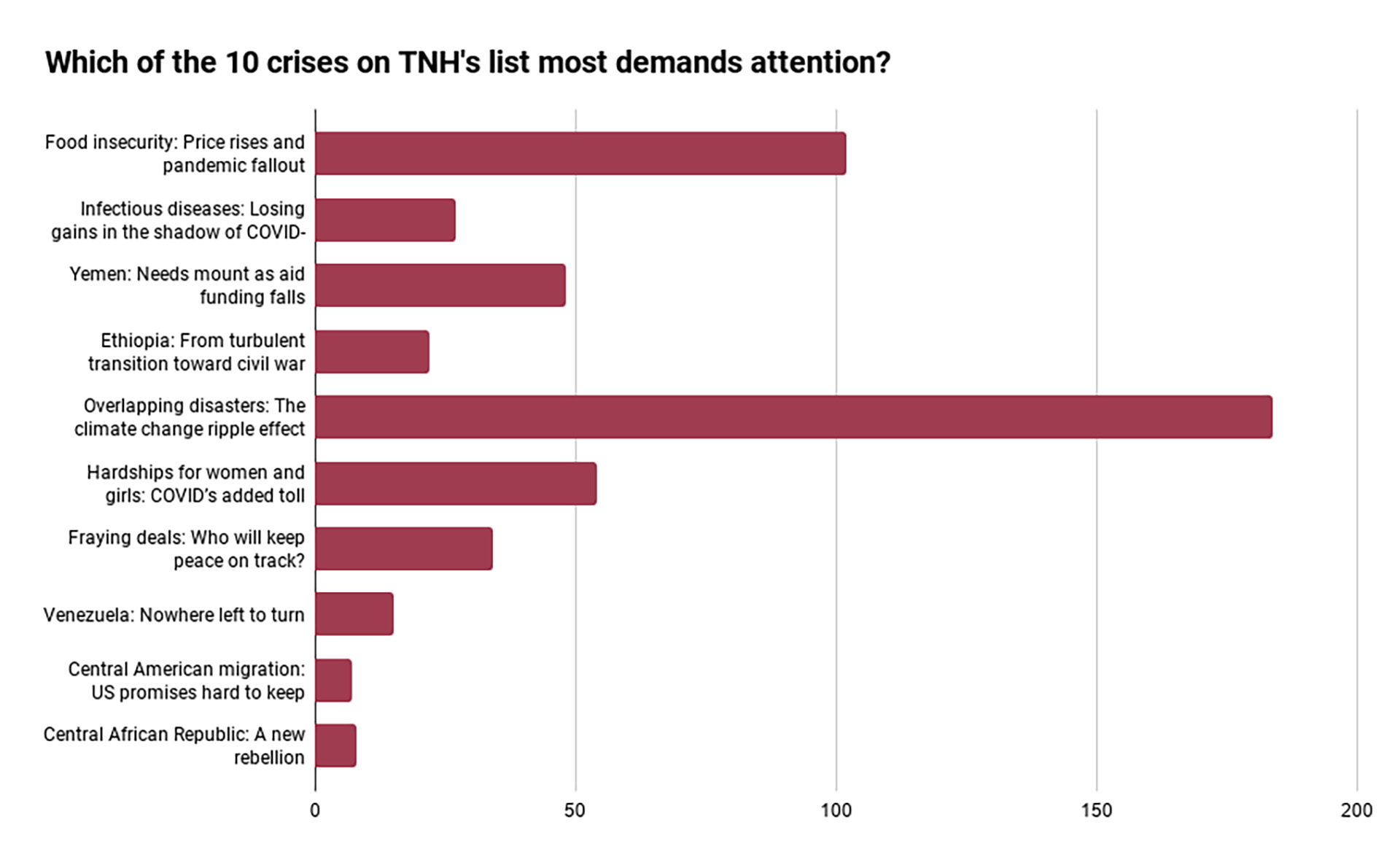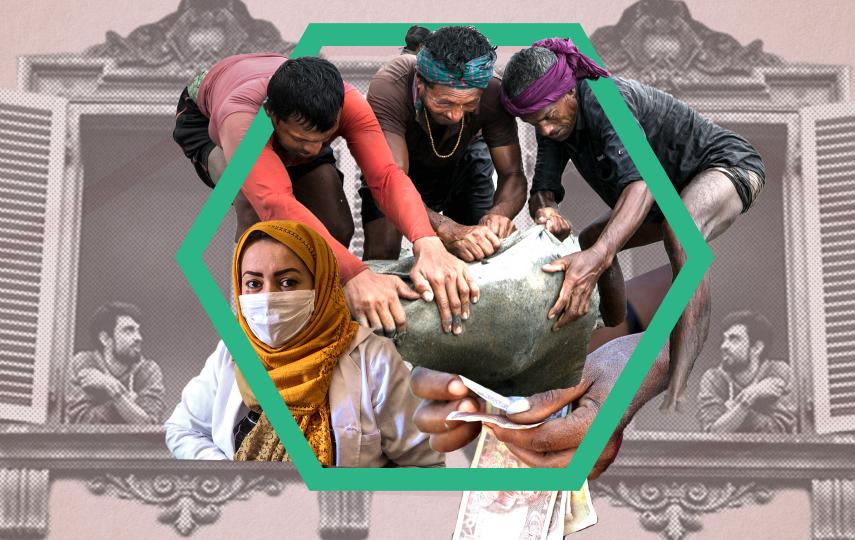You’ve read The New Humanitarian’s annual lists of crises and policy trends to watch.
That was our take. What’s yours? We asked that question of the audience during a recent conversation (video online here) to discuss with humanitarian practitioners and analysts the issues they expect will shape 2021.
About 140 people from the 1,000+ online audience offered up a variety of themes – from food security to sanitation – and pointed to emergencies in countries and regions ranging from Palestine, Lebanon, the Sahel, and Yemen to more surprising locations, like Europe.
Here’s what they said, compiled in this first-ever “people’s edition” of our annual humanitarian crises and trends to watch list.
Pandemic response and vaccine rollout: Unsurprisingly, this was the top priority – from straight-up COVID-19 response, vaccine nationalism, and vaccine distribution in underserved areas, to preventing the next pandemic. But there was also a warning to ensure the ends justify the means when it comes to virus containment.
Violence against women: Perhaps swayed by compelling arguments by panellist Julia Sánchez, this topic – which also made our list – was a key concern, not only to address sexual and gender-based violence, but to reduce the burden of unpaid care work and tackle the power structures that underpin gender inequality. We also got feedback from one reader about a lack of data specific to men and boys.
Displacement: You might argue this hasn’t been as much of a policy priority in light of less movement during the pandemic, but it remained high among viewers’ concerns, with references to displacement due to war, climate change, and xenophobia as well as EU refugee policies, the failure to reform asylum and migration policy, and how to include refugees and migrants in COVID-19 vaccination plans.

Climate change: This came out top in an audience poll during the event and was one of the main focuses of the conversation. Many argued for global, holistic action on the climate crisis and advocacy around climate impacts. Interestingly, biodiversity also came up – a topic you don’t often hear about in humanitarian settings.
Education and child protection: This was a resounding priority, with many voicing concern about the education crisis for children due to pandemic-related school closures and the lasting effects on children's development. The pandemic has also increased vulnerability for children – from child labour to child marriage.
Democratic threats: The threat to democracy and pluralism globally, the rise of nationalism and “right-wing extremism”, state-sponsored digital destabilisation campaigns, and the infodemic of fake news – until now not usually the purview of humanitarian policy-makers – cropped up from a significant number of respondents.
Inequality and access to basic services: Panellist Eilidh Kennedy struck a chord when she said: “Inequality needs to be core of humanitarians' business.” Wealth inequality and equal access to resources featured strongly, as well as access to basic services, economic recovery, and supporting good governance.
Protecting vulnerable groups: Protection challenges, including human rights violations, human trafficking, and compounding issues for LGBTQI + individuals came up, as did violence against ethnic minorities, with the Uighurs in China, and the Rohinyga in Myanmar specifically cited.
Aid funding: Sustaining humanitarian aid funding at a time when countries are looking inward was a common concern. “Given the pressure that donor economies and governments are under, we cannot take funding for [humanitarian] operations for granted,” one viewer noted. Another worried about donor (and audience) exhaustion with protracted conflict leading to a belief that “that's just the way it is”. Mechanisms to fund locally-led responses specifically came up.
Humanitarian system change, particularly location: From the use of big tech and artificial intelligence in aid delivery to preparedness and disaster risk management, and from the triple nexus to working more closely with specialists from other fields, many felt the priority for humanitarian policy-makers this year should be “fundamental system change”. The biggest part of that change? More locally-led aid delivery and the shift in decision-making power necessary to achieve that. That includes making sense of calls for the “decolonisation” of humanitarian aid.







